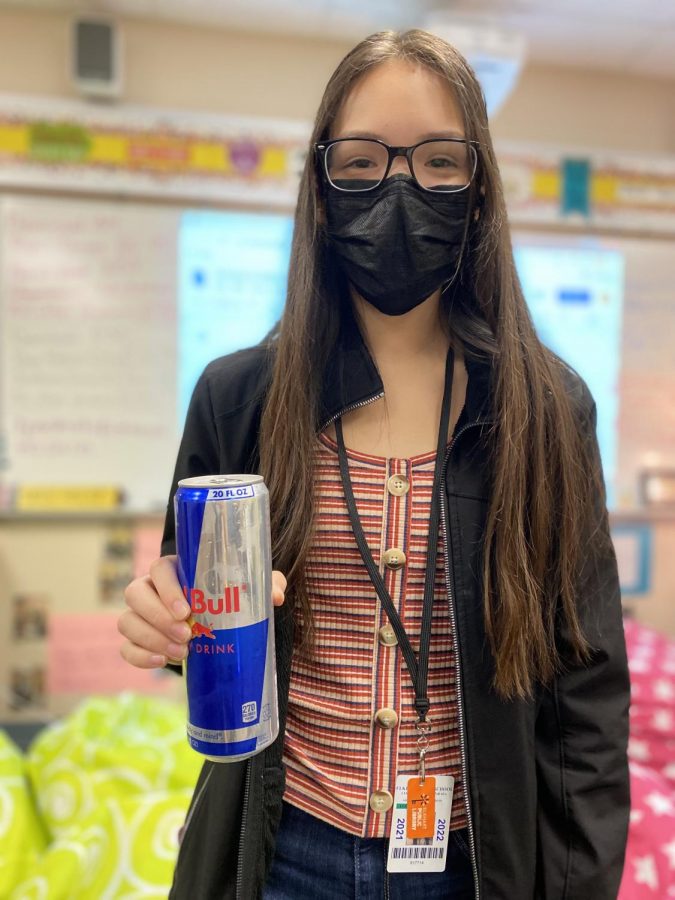Caffeine: Making Up For Lost Time
Teens who cannot get their full eight hours of sleep often resort to caffeine, just to make it through the day.
October 12, 2021
Is the extra hour worth it?
Studies claiming that teens need to get up later–thus, the later start to high school–do not take into account that every day only has 24 hours in it, despite what time a person sets his or her alarm. Thus, starting later only means that students will stay up later to pack in all that is required of them in a day, especially athletes and students working jobs after school.
The sleep deprivation that teens suffer from can cause an array issues–school, work, homework, and extracurricular activities. At the end of the day, many find themselves thinking Where has the time gone? Teens are recommended to get between eight and ten hours of sleep a night, although for most that time is cut in half. With not starting school until 8:35 a.m., students are not getting released now until 4 p.m. From there, student athletes go straight to their two-hour practice and are not getting done until 7 p.m. Once students get home at 7:30-8:00 p.m., sleep is the last thing they are worrying about.
They have to eat, shower, and get homework done in order to remain eligible to play their sport. Students holding down after-school jobs often get home even later. As a result, many students don’t–or won’t–go to bed until midnight or later. On average, students are getting about 6 hours of sleep a night, making it very common to walk by a classroom and see one or more students sleeping through a lesson. It’s not always from boredom either. Often, it’s just plain old fatigue.
Because of this trying to catch up on sleep, the cycle then repeats itself. What most don’t realize, though, is that increasing sleep time from six or fewer hours to eight hours can increase memory by 25%–a necessary tool for learning. Moreover, poor sleep can cause mood swings and physical health issues, as well. The cure is simple: Get more sleep. Still, one problem remains: Where is there time to get an eight-hour stretch of sleep?
But, why worry about that when one can just drink a Red Bull, Bang, or coffee, right? “I usually try to drink two cups of coffee a day,” confesses junior Lesly Hernandez. Without it, she finds it difficult to make it through the school day. Not surprisingly, high school students are more likely to consume more energy drinks than anyone else, and studies show male adolescents are more likely to drink any type of caffeinated drink. Females, on the other hand, are apparently more particular about the taste. Regardless, it’s not that all these students want to caffeinate up; they feel they have to.
Thus, until more time can be added into a day, more caffeine will be added to the cup.








